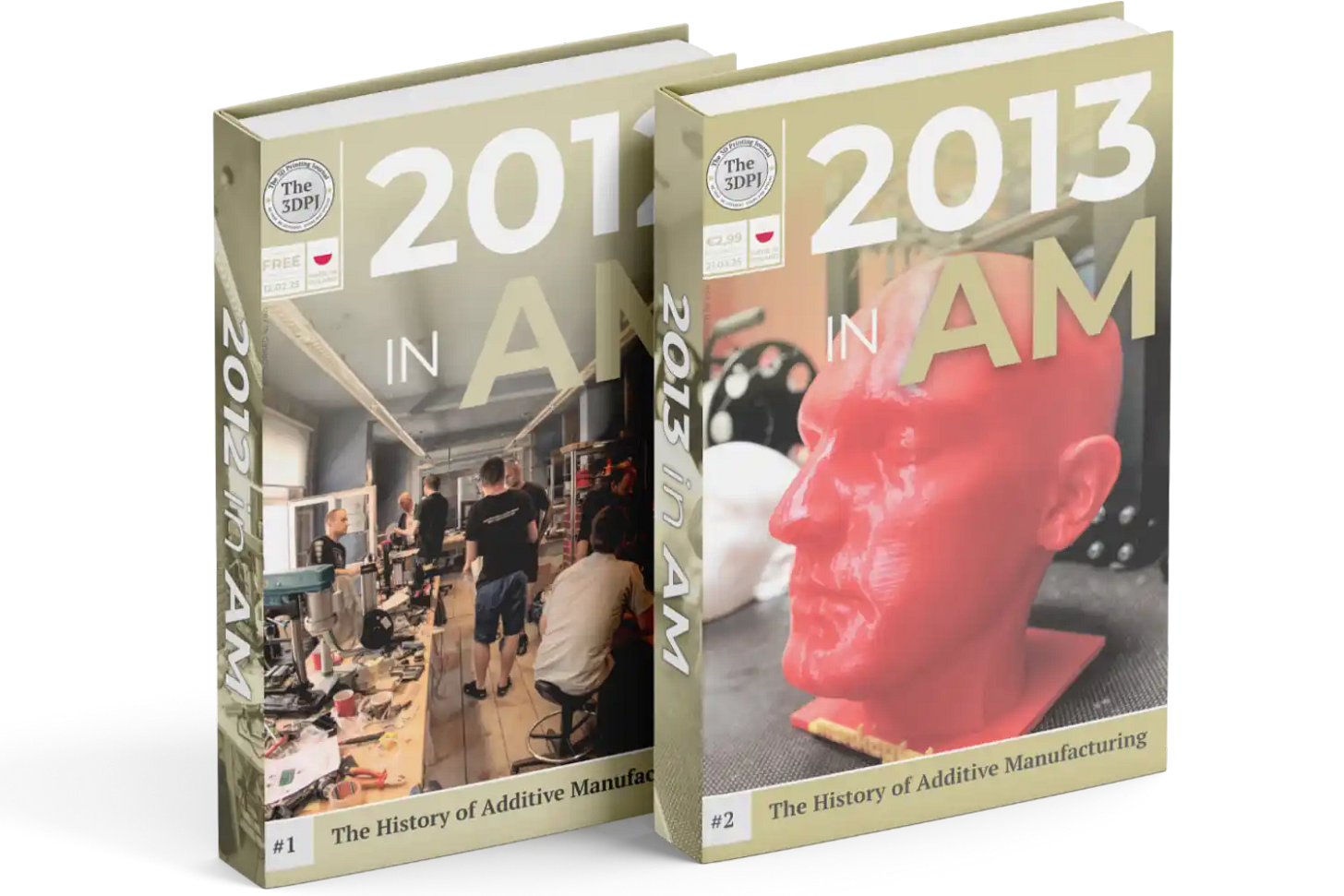05-11-2021: Grupa Azoty introduced Tarfuse Envi
an alternative to corn-based PLA in the form of thermoplastic starch, a 100% biodegradable and compostable polymer derived from potatoes
On May 11, 2021, Grupa Azoty S.A., one of the largest chemical companies in Europe, announced the launch of a production line dedicated to manufacturing plastics based on thermoplastic potato starch. The company's goal was mass production of granules that could replace conventional materials commonly used in single-use packaging, such as PET, HDPE, PVC, PP, and even PLA. Among the intended applications for thermoplastic starch were also filaments for FFF-type 3D printers.
Work on the new material began in August 2019. A Polish patent application was filed in May 2020, followed by a European application in March 2021. The launched production line had a capacity of 300 tons per year. The granules were used across various sectors, with a particular focus on the food industry—for producing single-use packaging, films, sausage casings, etc. Additionally, at the Grupa Azoty 3D Printing Materials Center in Tarnów, Poland, thermoplastic starch also served as the base for producing 3D printing filaments—Tarfuse Envi and Envi 1.
The new production line was Grupa Azoty’s response to the EU Directive 2019/904 of June 2019, which aims to reduce the environmental impact of certain plastic products. Single-use packaging made from plastics produced using modified natural polymers or derived from bio-based, fossil, or synthetic substances will be phased out. This includes polylactic acid (PLA), which, while biodegradable, requires specific composting conditions.
As for the Envi filaments, I can say I’m something of an expert. I have worked with it for several years and have only excellent opinions. The material comes in two forms — Envi, a milky coffee-colored filament, is fully water-soluble. Due to its high hygroscopicity, it must be dried before and during printing. Otherwise, its properties are similar to PLA, with the major difference being its complete solubility in water (like PVA) and full biodegradability in soil.

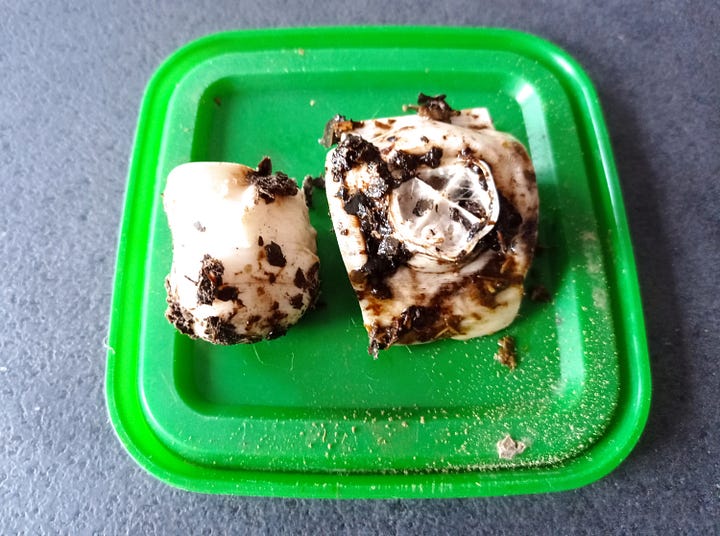
Envi 1 is a modified version that does not dissolve in water but is still biodegradable (see photos). It’s fantastic for making lampshades, as its velvety surface diffuses light like frosted glass. All the photos show our own projects completed in 2023–2024 for the now-defunct COLORISED interior finishing brand.
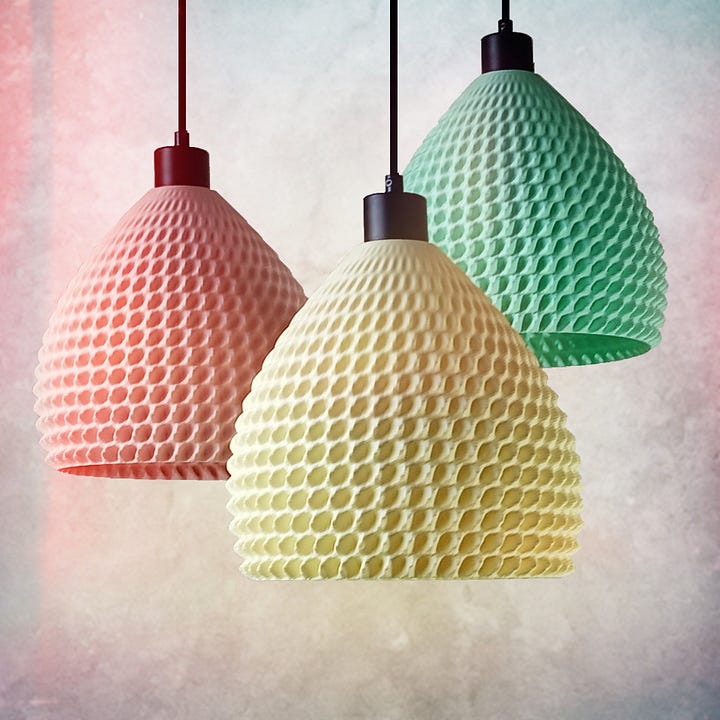
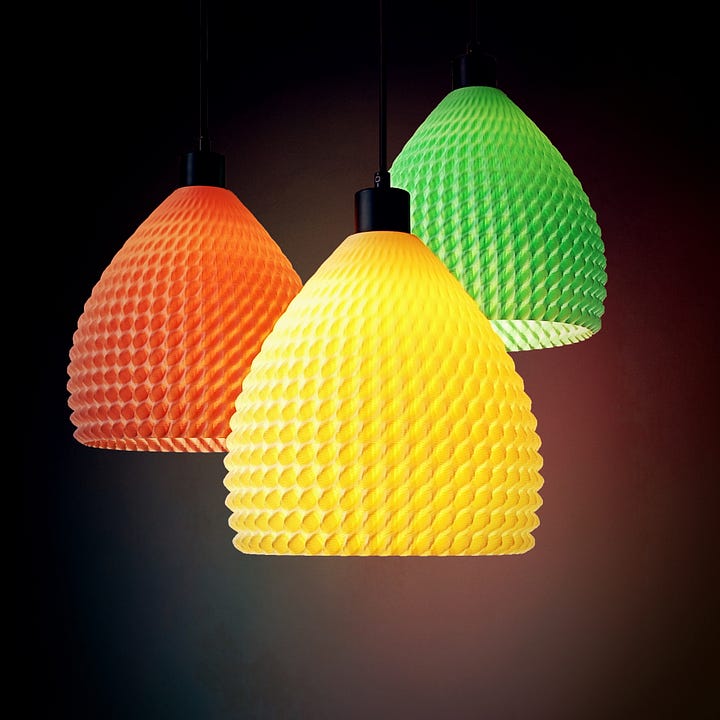
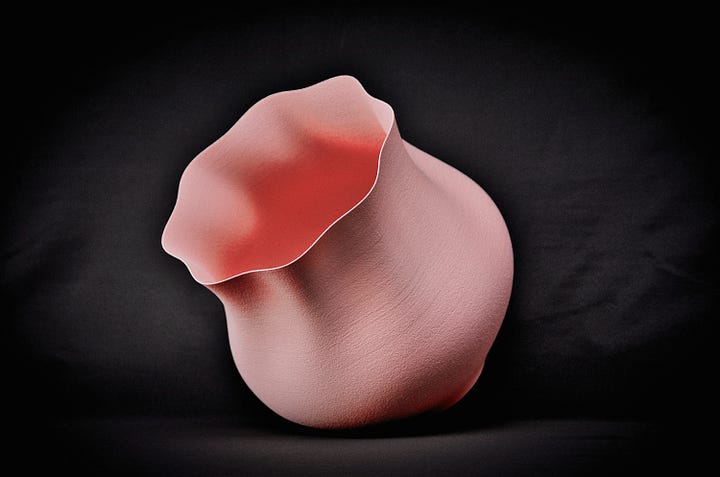
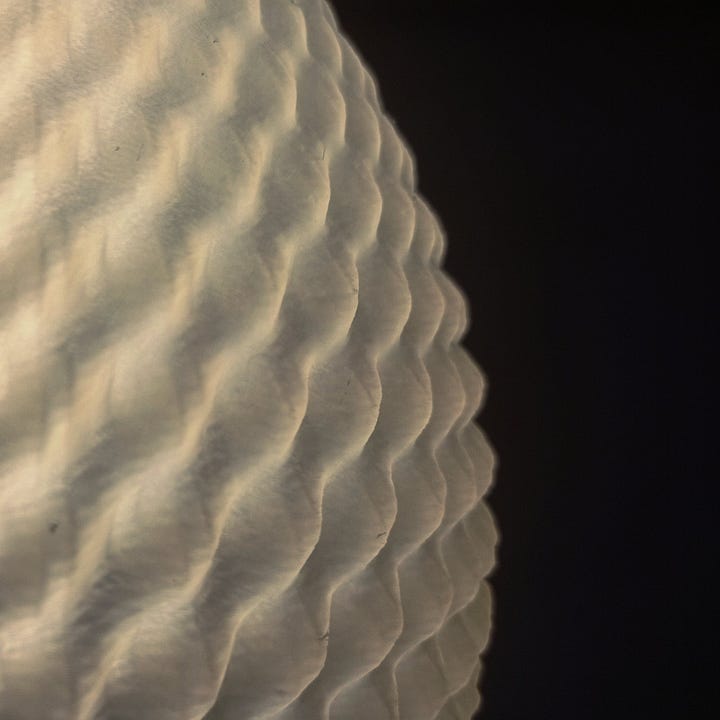
It’s available in white, as well as pastel colors: green, yellow, and pink. The colorants used were food-grade.
It’s an excellent material and a fantastic alternative to PLA, criminally underrated and largely unknown. Anyone interested is welcome to get in touch to share experiences (no, I don’t sell filaments).
Source: www.grupaazoty.com





